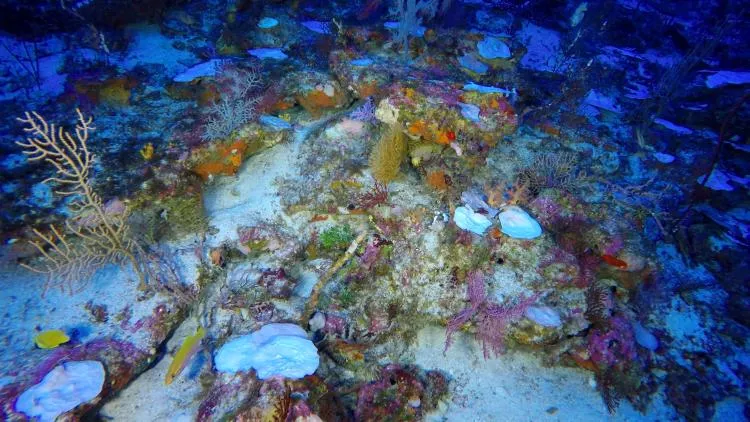Ocean temperature rise caused coral bleaching at depths over 90m
Deep-water coral reefs are generally assumed to be safe from the effects of a rise in temperature, but this may not necessarily be the case.
In November 2019, researchers from University of Plymouth recorded unexpected evidence of coral bleaching more than 90 metres below the ocean surface.
Describing their discovery as a "huge surprise," Dr Phil Hosegood, Associate Professor in Physical Oceanography at the University of Plymouth and lead on the project, said: "Deeper corals had always been thought of as being resilient to ocean warming, because the waters they inhabit are cooler than at the surface and were believed to remain relatively stable."
"However, that is clearly not the case," he continued, adding that other reefs at similar depths in other parts of the world were likely to be similarly under threat.
The research team had been studying the Central Indian Ocean for more than a decade, monitoring the region’s oceanography and its marine organisms. They had been collecting data via in situ monitoring, underwater robots and satellite-generated oceanographic data.
First sign of damage
The initial evidence of coral damage at such depths were first detected in November 2019, during a research cruise during which remotely operated underwater vehicles with camera were used to monitor the coral health. At that time, it was observed that the shallow-water reefs in the vicinity did not show any damage.
Over the subsequent months, the team continued to collect data in the field. During this period, although the temperatures at the ocean surface did not change, the temperatures beneath the surface rose from 22°C to 29°C. This was due to the thermocline deepening across the equatorial Indian Ocean.
Lead author Clara Diaz explained, "This is down to the regional equivalent of an El Nino, and due to climate change these cycles of variability are becoming amplified. Moving forward, bleaching in the deeper ocean here and elsewhere will likely become more regular."
Recovery of corals
In 2020 and 2022, the researchers returned to the same site and discovered that large parts of the reef had recovered. Nonetheless, they emphasise the importance of continual monitoring of the site, as deep-water corals are generally understudied.
Dr Hosegood added: "The oceanography of a region is impacted by naturally occurring cycles that are becoming amplified by climate change. [...] While there is no way we can stop the thermocline from deepening, what we can do is expand our understanding of the impacts that these changes will have throughout these environments of which we have so little knowledge."
























